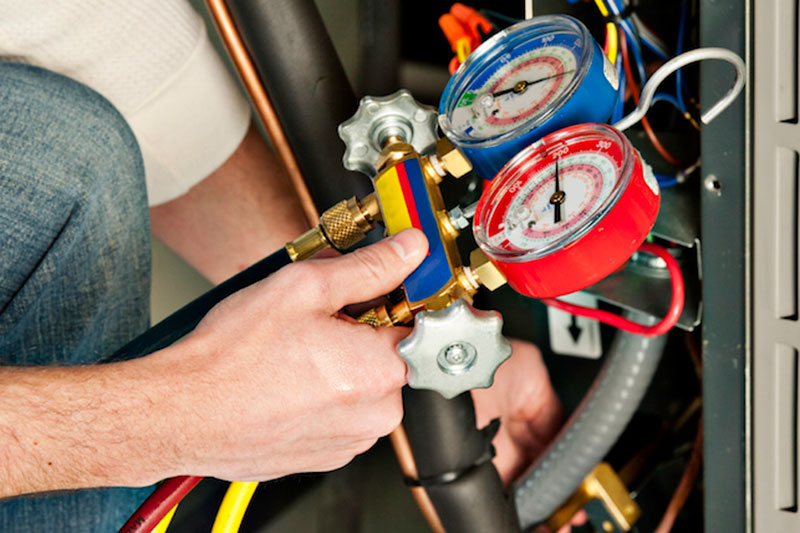
You might not think a lot about how your air conditioner works, but it needs refrigerant to keep your residence cool. This refrigerant is bound by environmental laws, because of the chemicals it contains.
Depending on when your air conditioner was put in, it may need R-22, R-410A or R-32 refrigerant. We’ll discuss the differences and which air conditioner refrigerants are being phased out in Phoenix, in addition to how these phaseouts affect you.
What’s R-22 and Why Is It Discontinued?
If your air conditioner was put in before 2010, it likely contains Freon®. You can discover if your air conditioner contains it by reaching us at 602-971-0567. You can also look at the name plate on your air conditioner condenser, which is found outside your home. This sticker will have information on what model of refrigerant your AC uses.
Freon, which is also referred to as R-22, includes chlorine. Scientists consider this chemical to be bad for the earth’s ozone layer and one that leads to global warming. The Environmental Protection Agency, which controls refrigerants in the United States, banned its production and import in January 2020.
I Have a R-22 Air Conditioner. Should I Replace It?
It varies. If your air conditioning is running correctly, you can continue to run it. With routine air conditioner maintenance, you can expect your system to run around 15–20 years. However, the Department of Energy notes that substituting a 10-year-old air conditioner could save you 20–40% on annual cooling bills!
If you don’t install a new air conditioner, it may lead to difficulties if you need air conditioning repair in the future, specifically for refrigerant. Repairs can be pricier, because only small amounts of recycled and reclaimed R-22 is available.
With the end of R-22, many new air conditioners now rely on Puron®. Also known as R-410A, this refrigerant was created to keep the ozone layer healthy. As it calls for a different pressure level, it isn’t compatible with air conditioners that rely on R-22 for cooling.
However, Puron still has the possibility to contribute to global warming. Because of that, it may also eventually be ended. Although it hasn’t been mandated yet for residential air conditioners, it’s likely sometime this decade.
What Refrigerant Will Replace R-410A?
In preparation of the end, some manufacturers have initiated using R-32 in new air conditioners. This refrigerant rates low for global warming likelihood—about one-third less than R-410A. And it also lowers energy consumption by approximately 10%, according to the Intergovernmental Panel on Climate Change’s Fourth Assessment Report. That’s savings that may be passed on to you through your cooling bills.
Integrity AC & Heating LLC Can Assist with All Your Air Conditioning Needs
In summary, the modifications to air conditioner refrigerant probably won’t impact you greatly until you require repairs. But as we talked about earlier, repairs connected to refrigerant can be more expensive because of the low amounts that are accessible.
In addition to that, your air conditioner typically breaks down at the worst time, often on the warmest day when we’re getting a lot of other calls for AC repair.
If your air conditioner uses an outdated refrigerant or is aging, we advise installing an up-to-date, energy-efficient air conditioner. This ensures a trouble-free summer and may even reduce your cooling expenses, especially if you choose an ENERGY STAR®-rated air conditioner. Plus, Integrity AC & Heating LLC offers many financing solutions to make your new air conditioner work with your budget. Contact us at 602-971-0567 to get started right away with a free estimate.


